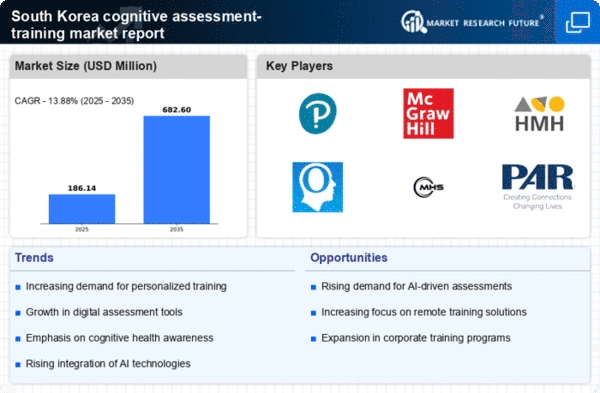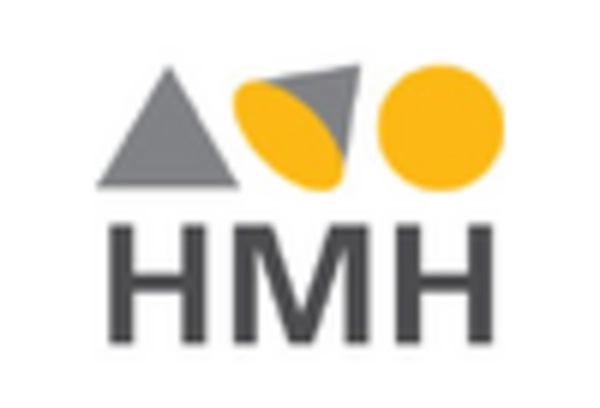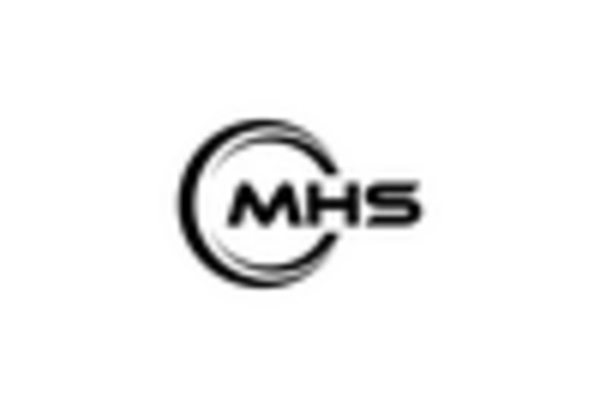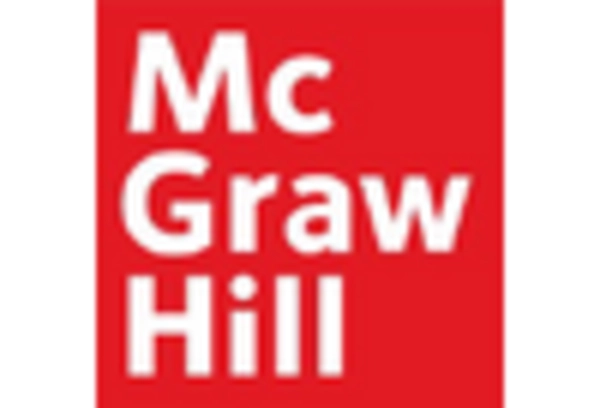Focus on Educational Reform
Educational reform initiatives in South Korea are reshaping the landscape of the cognitive assessment-training market. The government is actively promoting innovative teaching methods and assessment strategies that emphasize cognitive skills development. Recent policies aim to integrate cognitive training into the national curriculum, reflecting a commitment to enhancing students' critical thinking and problem-solving abilities. As a result, educational institutions are increasingly adopting cognitive assessment tools to align with these reforms. The cognitive assessment-training market is expected to grow as schools and universities invest in effective training solutions that meet the evolving educational standards and prepare students for future challenges.
Rising Demand for Cognitive Skills
The increasing recognition of cognitive skills as essential for academic and professional success drives the cognitive assessment-training market. In South Korea, educational institutions and corporations are increasingly prioritizing cognitive training programs to enhance problem-solving, critical thinking, and creativity among students and employees. This trend is reflected in the growing investment in cognitive assessment tools, which are projected to reach a market value of approximately $200 million by 2026. The emphasis on cognitive skills is further supported by research indicating that enhanced cognitive abilities correlate with improved job performance and academic achievement, thereby propelling the demand for effective training solutions in the cognitive assessment-training market.
Growing Awareness of Lifelong Learning
The concept of lifelong learning is gaining traction in South Korea, contributing to the expansion of the cognitive assessment-training market. As individuals increasingly seek to enhance their cognitive abilities throughout their lives, there is a rising demand for training programs that cater to various age groups and professional backgrounds. This trend is supported by government initiatives promoting continuous education and skill development. It is estimated that the market for lifelong learning in South Korea could reach $1 billion by 2027, with cognitive training being a significant component. The cognitive assessment-training market is likely to thrive as more individuals recognize the value of ongoing cognitive development in achieving personal and professional goals.
Integration of AI in Training Solutions
The integration of artificial intelligence (AI) into cognitive training solutions is transforming the cognitive assessment-training market. AI-driven platforms offer personalized learning experiences, adapting to individual cognitive profiles and learning paces. In South Korea, the adoption of AI technologies in educational settings is on the rise, with an estimated 30% of educational institutions implementing AI-based cognitive assessment tools by 2025. This technological advancement not only enhances the effectiveness of training programs but also provides valuable data analytics for educators and trainers, allowing for continuous improvement of cognitive training methodologies. Consequently, the cognitive assessment-training market is likely to experience substantial growth as AI continues to reshape training paradigms.
Corporate Investment in Employee Development
The increasing focus on employee development within corporate environments significantly influences the cognitive assessment-training market. South Korean companies are recognizing the importance of cognitive training in fostering a skilled workforce capable of adapting to rapid technological changes. Reports indicate that approximately 40% of organizations in South Korea are investing in cognitive training programs to enhance employee performance and innovation. This trend is likely to continue as businesses seek to maintain competitive advantages in a dynamic market. The cognitive assessment-training market stands to benefit from this corporate investment, as organizations prioritize cognitive skill development as a key component of their training strategies.
















